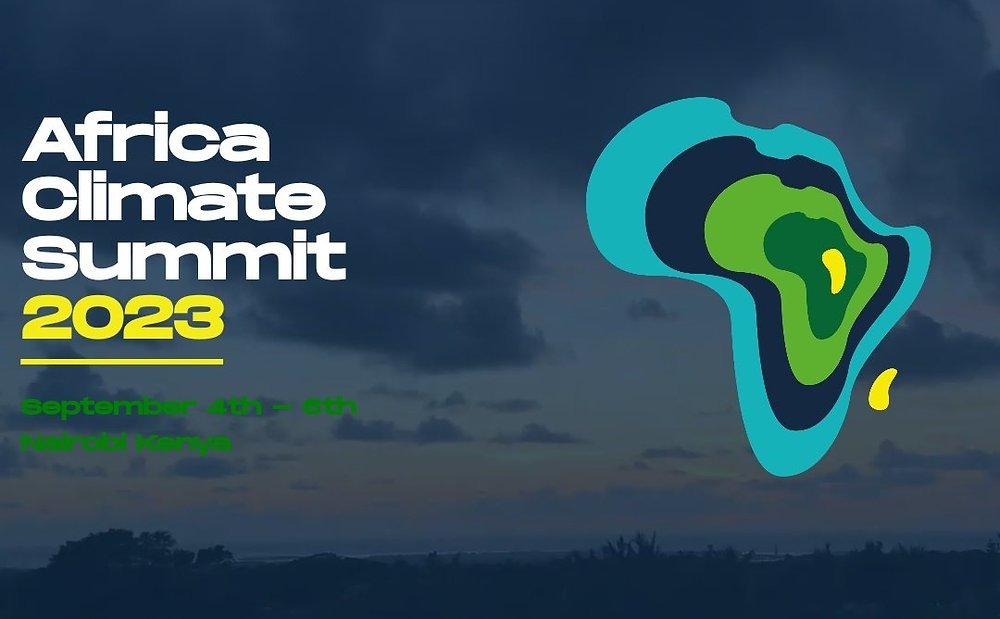The summit carries immense significance as it serves as a crucial platform for African leaders to unite and forge a sustainable future powered by clean, renewable energy.

African and international leaders have convened in Nairobi, Kenya, for the highly anticipated African Climate Summit, taking place from September 4 to 6.
The summit carries immense significance as it serves as a crucial platform for African leaders to unite and forge a sustainable future powered by clean, renewable energy.
The primary objective of this gathering is to develop a unified African position on the global climate crisis, just months before the pivotal COP28 (28th Conference of the Parties) climate talks scheduled for December. These talks will play a pivotal role in shaping the future of our planet and determining our collective response to the pressing climate challenges.
At the forefront of the summit’s agenda is the formulation of the “Nairobi Declaration for Green Growth.” This declaration will serve as a blueprint for Africa’s transition towards a green energy future, one that is both environmentally sustainable and economically viable. The leaders assembled in Nairobi recognize that renewable energy is the key to securing a prosperous and resilient future for the continent.
One notable attendee is COP28 President Sultan Al Jaber, who also serves as the CEO of the Abu Dhabi National Oil Co (ADNOC). His presence raises critical questions about balancing short-term economic interests in the fossil fuel industry with the imperative of taking transformative climate action.
The United Arab Emirates, where ADNOC is based, is witnessing significant growth in oil and gas production, making it essential for Al Jaber to prioritize sustainable alternatives at COP28.
African civil society organizations have been vocal in their concerns, particularly regarding the activities of Reconnaissance Energy Africa (ReconAfrica) in the Okavango Basin in Namibia and Botswana. ReconAfrica’s plans for extensive oil drilling in the region could unleash a “carbon gigabomb” of emissions, equivalent to a substantial portion of the world’s remaining carbon budget. This development threatens not only the environment but also local communities and biodiversity hotspots.
Similar concerns extend to other global energy giants, including BP, Chevron, Exxon, and Shell. Their investments in fossil fuel projects in Africa raise alarms about potential climate and biodiversity impacts. BP’s gas projects in West Africa and contracts with ENI, ExxonMobil, BP, Shell, and Total in Mozambique have faced criticism for their environmental consequences.
African communities remember all too well the devastation wrought by the fossil fuel industry, such as in the Niger Delta. The relentless extraction and exploitation of Africa’s resources, often with little regard for local communities and ecosystems, must come to an end.
The African Climate Summit presents an opportunity to set a new course, one that prioritizes a just and equitable transition away from fossil fuels. Unfortunately, concerns have arisen that the summit’s agenda has been influenced by fossil fuel promotion and carbon credit discussions rather than focusing on clean energy solutions.
Over 500 civil society organizations have called for a reset of the summit’s priorities, emphasizing African interests over those of the Global North and corporations. They demand a just and equitable phase-out of all new fossil fuel projects, recognizing that such projects are fundamentally incompatible with a livable future.
International organizations like the International Energy Agency have been clear: to achieve a 1.5°C warming limit and secure a livable future, there can be no new coal, oil, or gas projects. The belief that fossil fuels drive development has been debunked. These resources often flow out of Africa, leaving pollution, inequality, and government erosion in their wake.
Africa, a continent facing the brunt of the climate crisis while boasting abundant renewable energy potential, does not require more fossil fuels or unproven technologies. What African leaders must heed is the voice of the African people, who are calling for a just transition to 100 percent renewable energy.
With 600 million Africans lacking access to clean, modern energy, the path forward is clear: scale up affordable, decentralized renewable energy sources.
Renewable technologies offer a rapid and cost-effective solution, enhancing energy security while reducing energy costs permanently. Moreover, renewables are community-led, community-owned, and accessible to rural communities.
This transition is not only environmentally responsible but economically prudent. Renewable energy reduces volatility, fiscal instability, and stranded asset risks associated with fossil fuels. It paves the way for a more secure and prosperous future, benefiting both Africa and the world.
As African leaders gather at the Africa Climate Summit and prepare for COP28 in Dubai, the world watches with anticipation. It is a moment for them to demonstrate the integrity and leadership required to ensure a sustainable future powered by clean energy.
Africa, with its vast potential, can lead the way towards a brighter, greener, and more equitable future for all. The decisions made in Nairobi and at COP28 will shape our planet’s destiny for generations to come.